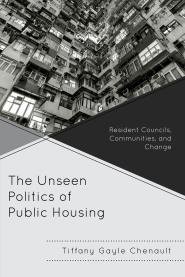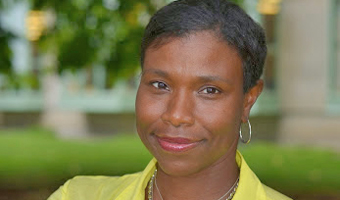Ohio University alum Dr. Tiffany Gayle Chenault has published her first book, The Unseen Politics of Public Housing: Resident Councils, Communities, and Change.
Chenault earned a BA in Sociology-Pre-Law with a minor in African-American Studies in 1996 from the College of Arts & Sciences at Ohio University. She is Associate Professor of Sociology and Coordinator of the African-American Studies Minor at Salem State University in Massachusetts.
“This book is my attempt to describe and explain HUD’s expectations for the resident council as an active agent for community building and the actual practices of the resident council,” she says.
“I argue that policies and regulations of resident councils which exist to support the effectiveness of the resident council in creating and implementing community-building, self-sufficiency, and empowerment activities and goals in a public housing community may do more harm than good.”
 Abstract: The Department of Housing and Urban Development invests and spends billions on Public Housing Programs (6.6 billion in 2013). The majority of the 1.2 million people who live in public housing do not live in large urban areas with thousands of people confined to a certain space. The majority of public housing units (90%) have fewer than 500 units. These smaller units and the people that live in them tend to go unnoticed.
Abstract: The Department of Housing and Urban Development invests and spends billions on Public Housing Programs (6.6 billion in 2013). The majority of the 1.2 million people who live in public housing do not live in large urban areas with thousands of people confined to a certain space. The majority of public housing units (90%) have fewer than 500 units. These smaller units and the people that live in them tend to go unnoticed.
This ethnographic case study focuses on explaining and understanding the factors and constraints that exist between HUD’s expectations for the resident council as an active agent for community building and the actual practices of the resident council. To explain the disjunction—in fact, to determine if such disjunctions identified by Rivertown council members are real. Using the tenets of Critical Race Theory allows us to understand what forces—either real or imagined, structural or cultural—prevent the resident council from being an effective agent for change in the public housing community.




















Comments